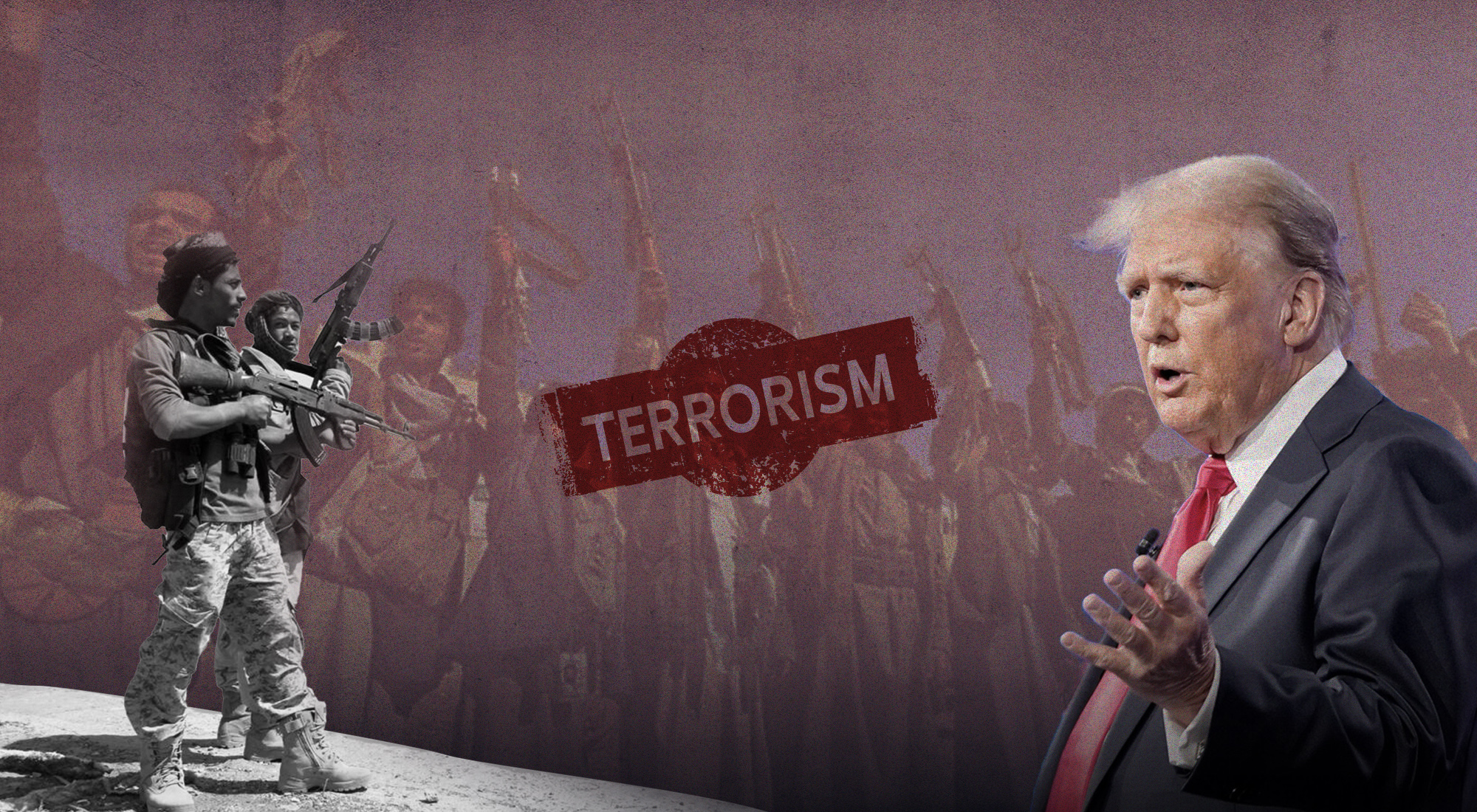The recent tragic events in Paris refreshed the importance of the historical roots of “fundamentalism”, which is misleadingly considered as only Islamic, or, even worse, inherently Islamic. The term “fundamentalism” itself, along with its notions, arose in the early 20th century in the United States. Between 1910 and 1915, a series of booklets entitled The Fundamentals restated the inerrancy of the Holy Bible and the traditional Christian doctrines in an antithetic function to modernism[1]. Whatever the religion, interpretations of jihadism are constantly forwarded in terms of dutiful analyses to prevent threats, and the mass media – not simply reflecting, but also creating our everyday life – play a large role in this through what I would name cyber-alarmism.
Apart from the non-Muslim origin of the concept of fundamentalism, we should better remember that the primary targets of Muslim zealots are mostly being other Muslims rather than non-Muslims. Their main goal has in fact been seen as rendering public their hermeneutics of what Islam should be. In other words, doing proselytism by force, in order to impose their own version of Islam onto other Muslims, has recently been theorized by Remy Low in the form of “public pedagogy”, a concept advanced by Henry Giroux[2]. It is worth quoting Low at full in this regard:
“The primacy of culture and power should thus be understood, in this reckoning, as a process whereby the political is also pedagogical, in particular insofar as private issues are articulated to larger social conditions and collective forces”.[3]
The people who reject such public pedagogy in its most extremist form will be duly punished. In a similar vein, Ami Hussain lately noticed how Ebola is a serious threat to West Africans, not to North Americans; and ISIS is a serious threat in Iraq and Syria, not there in North America, where he resides. “Similarly, ‘Abd al-Wahhab’s extremist views targeted Muslims, not non-Muslims”[4], referring to the most conservative form of societal Islam called Wahhabism, born and flourished in the central Saudi region of Najd, in which it is presently concentrated and representing 22.9% of the local population[5].
The increasingly frequent public declarations of Muslims about their remaining aloof from such violent interpretations of Islam deeply sadden me. For instance, in the wake of the January Paris massacre, many believers felt the need for “apologizing” for what had happened, and reaffirmed a moderate – yet essentialist – interpretation of what Islam can be. The point is rather: why should they constantly negotiate with the Otherness the meaning itself and the empirical forms of Islam, unlike other religions? Why should this faith be automatically correlated to outbursts of violence rather than focusing the public’s attention to hardly ever explored social circumstances?
The problem primarily lies in our persistence in essentializing Islam, as we unabashedly do with any other religious and cultural form of (un)humanness: giving an unchangeable substance to it and thinking of it in terms of strict coherence. Again, this too often occurs in dealing with Islam unlike all other faiths.
In this framework, the socialization of jihadism is still lacking. So to speak, what keep lacking are the will to identify – and the consequent identification of – social facts and trends underlying the phenomenon. Indeed, what misses is seeing jihadism, narrowly labeled as “terrorism”, as a social phenomenon rather than as either a psychological deviation, affecting the jihadist’s mind, or a “radicalization” of the individual and his/her views, as though the latter were produced independently from material life.
Religion-driven extremism has largely been believed a clinically explicable issue, or the product of the efficacious action of evil persuaders. The mere psychologization of human phenomena is by now the shortcut of mass media and quick commentators. However, it is dutiful to recall how overcoming “exigho-phobia”[6] – meaning in Ancient Greek fear of (social) explanations – is the first move to do in order to explain jihadism, fundamentalism, their simplified label of terrorism, and their connections with multiple forms of extremism. Such a public fear is rooted in the belief that explaining is synonym with justifying.
In light of this, with regards to the Paris massacres, the European nationality of the Muslim murderers has been silenced on one hand, not to point to France and its social management of religion and foreign policy[7]. On the other, their Europeanness should not certainly justify and explain holistically their criminal acts, which still claim to have a religious and – although grotesque – pedagogic basis.
As anthropologist Hage was highlighting (2003) in regards to Palestinian suicide bombers in Israel, there is a specific ideology behind labeling terrorism and extremism, and not merely behind the act of doing terrorism. What is totally overlooked in the media is the fact that the diverse forms of justice, power, and social ethics, are all potentially proper to different ideological fundamentalisms, which develop further in presence of particular social factors (i.e. marginalization and criminalization of migrant or refugee groups in allegedly developed countries; political oppression and absence of stronger weapons in the case of Palestinian suicide bombers breaking up the “quietness” of Israeli everyday lives; or, in the present case of Syria and Iraq, prolonged state neglect and the smaller – and corrupted – allocation of resources to the more “moderate” political opposition groups, therefore contributing to creating room for ISIS).
As Cas Mudde[8] has recently advanced, “civility is a slippery concept, meaning different things to different people. And it is a notion which is almost always used selectively and opportunistically”.
Even when social explanations to episodes of (in)human violence seem to be given, identity politics is unfortunately the card that is played in order define once for all an entire group, and therefore arbitrarily blaming it for the guilt of few of its members, many, or just one.
In fact, as Juan Cole[9] has importantly asserted, “extremism thrives from other people’s extremism”, which populated the tweets last January. In this specific case, we witness a polarized imaginary between the Western spectators, scared and promptly ready to epitomize a universal identity made of unconditioned freedoms and decency, and, on the other side, the extremist evils, arbitrarily homologated and here embodied, as discussed, by ISIS, Palestinian suicide bombers, or other various forms of violence that claim Islamic principles as theirs to different extents.
Thus, on a purely interpretative level, there are actually two totalitarianisms clashing with each other. Our duty as knowledge producers is indeed deconstructing them.
[1] Douglas Weaver, C. (2008). In Search of the New Testament Church: the Baptist Story. (p.132). Macon, GA: Mercer University Press.
[2] Giroux, H. A. (2004). “Cultural Studies, Public Pedagogy, and the Responsibility of Intellectuals”. In Communication and Critical/Cultural Studies 1(1), p. 59-70.
[3] Low, R. Y. S. (2015), Making up the Ummah: the Rhetoric of ISIS as Public Pedagogy. (p. 4). Available online at: https://www.academia.edu/10496369/Making_up_the_Ummah_The_rhetoric_of_ISIS_as_public_pedagogy.
[4] Hussain, A., December 2014, UC-Observer. Available online at: http://www.ucobserver.org/features/2014/12/islam/.
[5] Izady, M. (2013). Demography of Religion in the Gulf. Available online at: http://gulf2000.columbia.edu/images/maps/GulfReligionGeneral_lg.png.
[6] The term is used by anthropologist Ghassan al-Hage to refer to the fear of explaining the social structure in which Palestinian suicide bombers decide to undertake that sort of political violence. For details: Hage, G. (2003). “’Comes a Time we are all Enthusiasm’: Understanding Palestinian Suicide Bombers in Times of Exighophobia”. In Public Culture 15 (1), pp. 65-89.
[7] In this regard, Della Ratta, D., January 2015, on Il Manifesto. Available online at: http://ilmanifesto.info/europa-e-islam-chi-e-charlie-veramente/.
[8] Mudde, C., January 2015, on OpenDemocracy. Available online at: https://www.opendemocracy.net/can-europe-make-it/cas-mudde/no-we-are-not-all-charlie-and-that%E2%80%99s-problem.
[9] Cole, J., January 2015, on “Informed Comment”. Available online at: http://www.juancole.com/2015/01/sharpening-contradictions-satirists.html.








